Not to be missed! Please share with friends in Philadelphia, and mark your calendars.
E-Verse Equinox Reading Series Featuring Poets from Portland, Washington DC, and Philadelphia
Michael Dickman, Catie Rosemurgy, Thomas Devaney, and Jehanne Dubrow
Hosted by Ernest Hilbert
Tuesday, September 18th, 2012
7PM
Robin’s Books and Moonstone Arts Center
110A S. 13th St., Philadelphia, Pennsylvania 19107
(Walk up the stairs to the bookstore)
(215) 735-9598
FREE AND OPEN TO THE PUBLIC
Michael Dickman’s first collection, The End of the West, was published in 2009 by Copper Canyon Press. He is the co-author with his twin brother Matthew of 50 American Plays, also from Copper Canyon Press. His second collection of poetry, Flies (Copper Canyon Press, 2011), received the 2010 James Laughlin Award. Dickman appeared with his twin brother as two of the three “precogs” in the 2002 Hollywood film Minority Report.
“My Autopsy” by Michael Dickman
There is a way
if we want
into everything
I’ll eat the chicken carbonara and you eat the veal, the olives, the
small and glowing loaves of bread
I’ll eat the waiter, the waitress
floating through the candled dark in shiny black slacks
like water at night
The napkins, folded into paper boats, contain invisible Japanese
poems
You eat the forks,
all the knives, asleep and waiting
on the white tables
What do you love?
I love the way our teeth stay long after we’re gone, hanging on
despite worms or fire
I love our stomachs
turning over
the earth
***
There is a way
if we want
to stay, to leave
Both
My lungs are made out of smoke ash sunlight air
particles of skin
The invisible floating universe of kisses, rising up in a sequinned
helix of dust and cinnamon
Breathe in
Breathe out
I smoke
unfiltered Shepheard’s Hotel cigarettes
from a green box, with a dog on the cover, I smoke them
here, and I’ll smoke them
There
***
There is a way
if we want
out of drowning
I’m having
a Gimlet, a Caruso, a
Fallen Angel
A Manhattan, a Rattlesnake, a Rusty Nail, a Stinger, an Angel
Face, a Corpse Reviver
What are you having?
I’m buying
I’m buying for the house
I’m standing the round
Wake me
from the dash of lemon juice,
the half measure of orange juice, apricot brandy,
and the two fingers of gin
that make up paradise
***
There is a way
if we want
to untie ourselves
The shining organs that bind us can help us through the new dark
There are lots of stories about intestines
People have been forced to hold them, alive and shocked awake
The doctors removed M’s smaller one and replaced it, the new
bright plastic curled around the older brother
Birds drag them out of the dead and abandoned
Some people climb them into Heaven
Others believe we live in one
God’s intestine!
A conveyor belt of stars and saints
We tie and we loosen
Minor
and forgettable
miracles
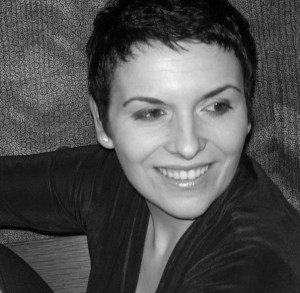 Jehanne Dubrow is the author of three poetry collections, including most recently Stateside (2010). In autumn 2012, Northwestern University Press will publish her fourth book of poems, Red Army Red. Her first book, The Hardship Post (2009), won the Three Candles Press Open Book Award, and her second collection, From the Fever-World, won the Washington Writers’ Publishing House Poetry Competition (2009). She lives in Washington, DC.
Jehanne Dubrow is the author of three poetry collections, including most recently Stateside (2010). In autumn 2012, Northwestern University Press will publish her fourth book of poems, Red Army Red. Her first book, The Hardship Post (2009), won the Three Candles Press Open Book Award, and her second collection, From the Fever-World, won the Washington Writers’ Publishing House Poetry Competition (2009). She lives in Washington, DC.
“Chernobyl Year” by Jehanne Dubrow
We dreamed of glowing children,
their throats alive and cancerous,
their eyes like lightning in the dark.
We were uneasy in our skins,
sixth grade, a year for blowing up,
for learning that nothing contains
that heat which comes from growing,
the way our parents seemed at once
both tall as cooling towers and crushed
beneath the pressure of small things—
family dinners, the evening news,
the dead voice of the dial tone.
Even the ground was ticking.
The parts that grew grew poison.
Whatever we ate became a stone.
Whatever we said was love became
plutonium, became a spark
of panic in the buried world.
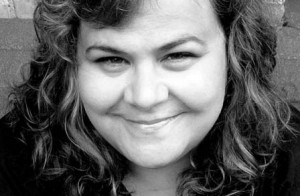 Catie Rosemurgy’s poetry collections include The Stranger Manual (2010) and My Favorite Apocalypse (2001). Her poems have been featured in the anthologies Isn’t It Romantic: 100 Love Poems by Young American Poets (2004), Poetry 30 (2005), and Best American Poetry (1997). She is the recipient of a 2012 Pew Foundation fellowship.
Catie Rosemurgy’s poetry collections include The Stranger Manual (2010) and My Favorite Apocalypse (2001). Her poems have been featured in the anthologies Isn’t It Romantic: 100 Love Poems by Young American Poets (2004), Poetry 30 (2005), and Best American Poetry (1997). She is the recipient of a 2012 Pew Foundation fellowship.
“Mostly Mick Jagger” by Catie Rosemurgy
1
Thank god he stuck his tongue out.
When I was twelve I was in danger
of taking my body seriously.
I thought the ache in my nipple was priceless.
I thought I should stay very still
and compare it to a button,
a china saucer,
a flash in a car side-mirror,
so I could name the ache either big or little,
then keep it forever. He blew no one a kiss,
then turned into a maw.
After I saw him, when a wish moved in my pants.
I nurtured it. I stalked around my room
kicking my feet up just like him, making
a big deal of my lips. I was my own big boy.
I wouldn’t admit it then,
but be definitely cocks his hip
as if he is his own little girl.
2
People ask me—I make up interviews
while I brush my teeth—”So, what do you remember best
about your childhood?” I say
mostly the drive toward Chicago.
Feeling as if I’m being slowly pressed against the skyline.
Hoping to break a window.
Mostly quick handfuls of boys’ skin.
Summer twilights that took forever to get rid of.
Mostly Mick Jagger.
3
How do I explain my hungry stare?
My Friday night spent changing clothes?
My love for travel? I rewind the way he says “now”
with so much roof of the mouth.
I rewind until I get a clear image of myself:
I’m telling the joke he taught me
about my body. My mouth is stretched open
so I don’t laugh. My hands are pretending
to have just discovered my own face.
My name is written out in metal studs
across my little pink jumper.
I’ve got a mirror and a good idea
of the way I want my face to look.
When I glance sideways my smile should twitch
as if a funny picture of me is taped up
inside the corner of my eye.
A picture where my hair is combed over each shoulder,
my breasts are well-supported, and my teeth barely show.
A picture where I’m trying hard to say “beautiful.”
He always says “This is my skinny rib cage,
my one, two chest hairs.”
That’s all he ever says.
Think of a bird with no feathers
or think of a hundred lips bruising every inch of his skin.
There are no pictures of him hoping
he said the right thing.
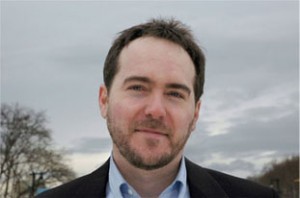 Thomas Devaney’s two poetry collections are A Series of Small Boxes (Fish Drum, 2007) and The American Pragmatist Fell in Love
Thomas Devaney’s two poetry collections are A Series of Small Boxes (Fish Drum, 2007) and The American Pragmatist Fell in Love
(Banshee Press, 1999). He also published a nonfiction book, Letters to Ernesto Neto (Germ Folios, 2005). Devaney is currently a Visiting Assistant Professor at Haverford College.
“Obi-Wan Kenobi” by Thomas Devaney
to Ted Casterline
Toward the end of his life Obi-Wan Kenobi
was like an old cat.
He was like, cut the pomp and circumstance
and show me the couch.
The rebels had gone off without him,
his planet a backwater of the known worlds.
It was hard enough to do the little things:
get a decent hair cut, mend his sandals.
He understood longer than he’d like to remember,
that it’s the little things, comfortable shoes,
a good haircut, that really keep you going.
And in another hundred and twenty years,
if anyone remembered,
he didn’t want to be known as the “long-haired,
broken-sandaled Kenobi.”
A hundred and twenty years of tough love
can put some ideas into your head.
Sure, he could have as much sky as there is to take,
but he’s not above the petty:
The pens and pencils of existence, as he calls them.
He makes the Red juice from concentrate
and drinks it all morning,
Says his “May the force be with you,” old man prayers.
Then back to his pens, pencils,
faintly ignorant of the window, and the others, thinking,
the old giants can’t turn their ships around fast enough.
Today, the pang of a long-gone love’s swarmed over him,
invisible, like sand ants on a crater.
Today he notices his sandals, made of Taun-taun,
or possibly even Bantha,
are beat and in great need of mending.
He’ll get them mended, it’s a half day’s journey.
He’ll take leave, traveling light;
the sand ants are clambering in song and dance.

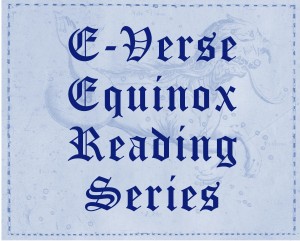
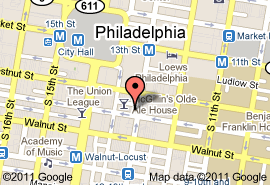
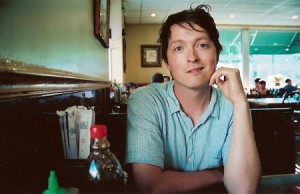

1 Comment
what a superlative lineup of poets . . . can’t you videotape and youtube it please for those of us too faraway to attend . . .